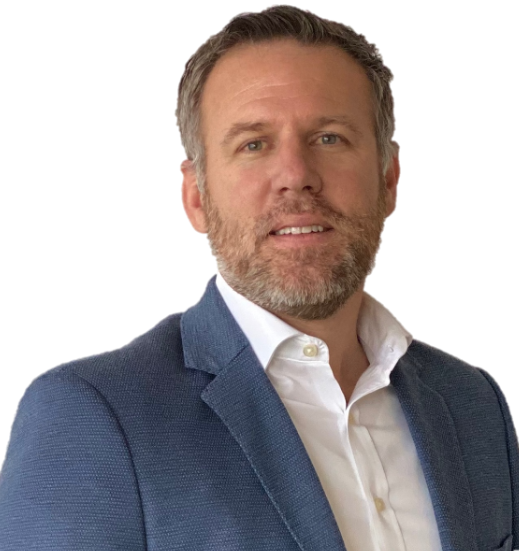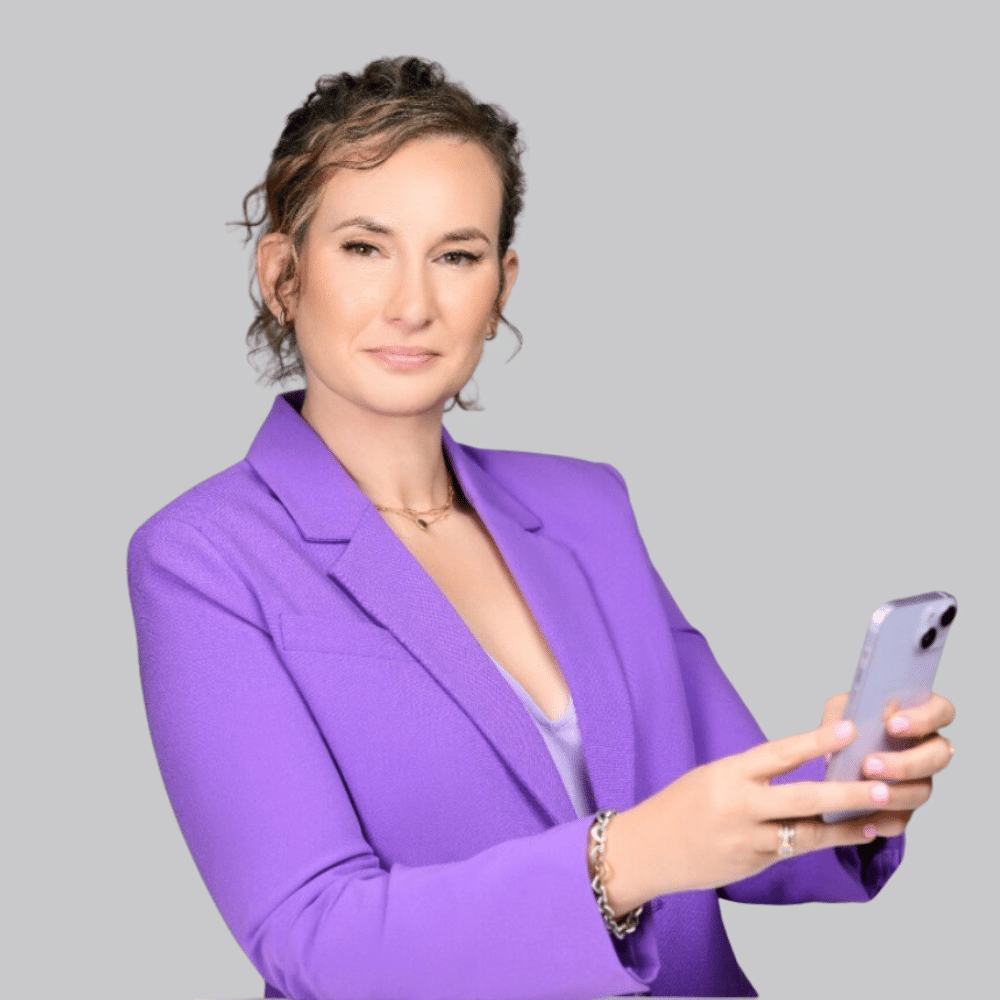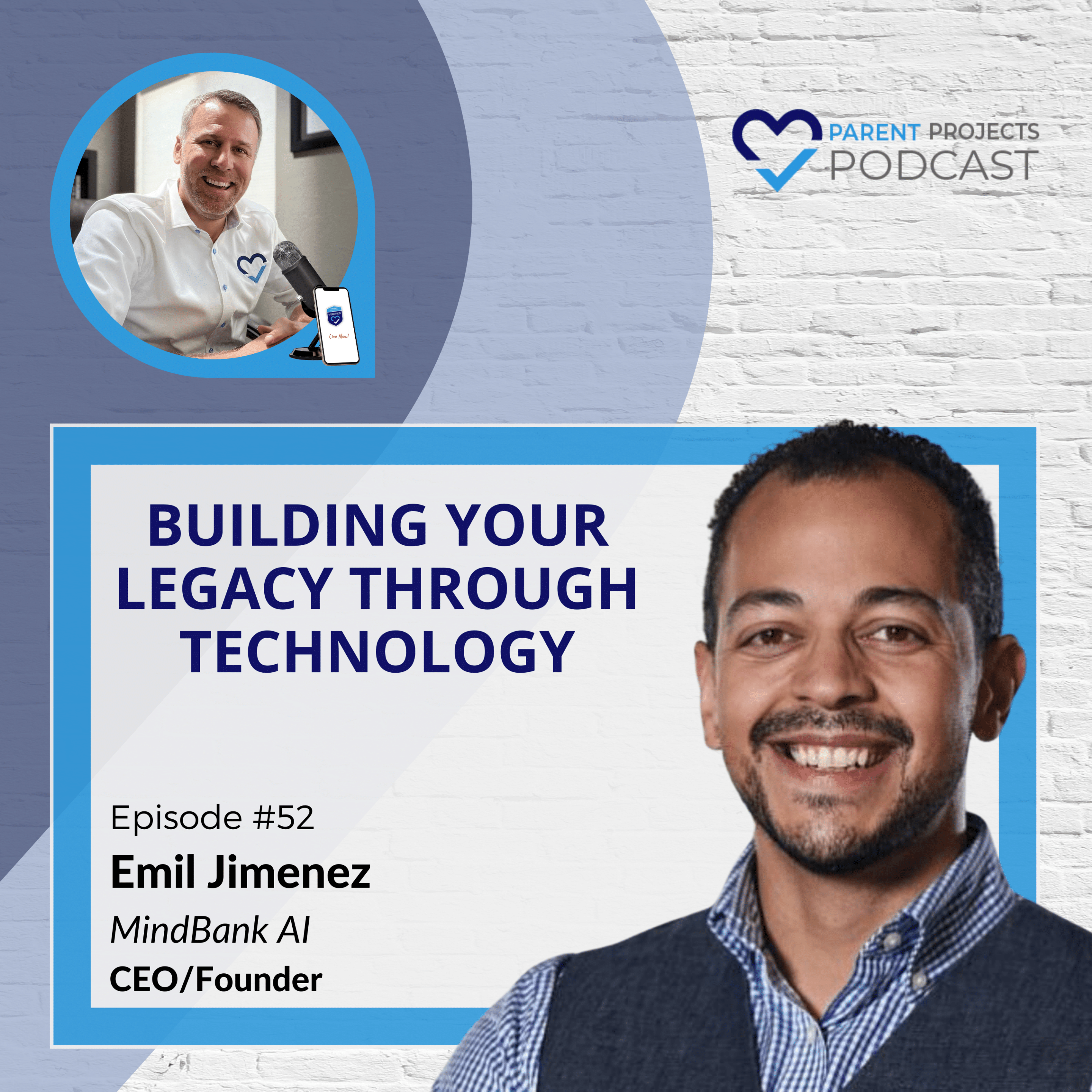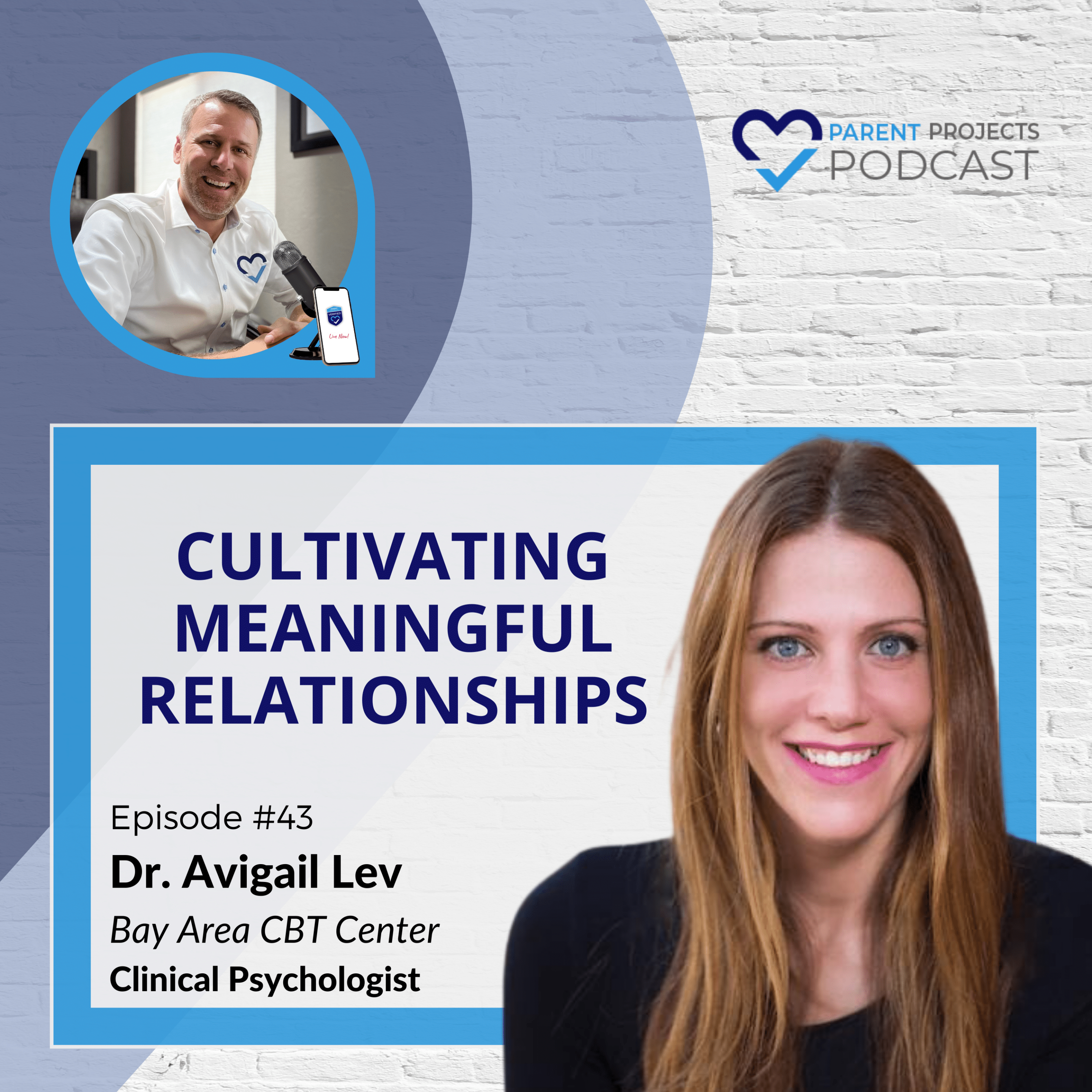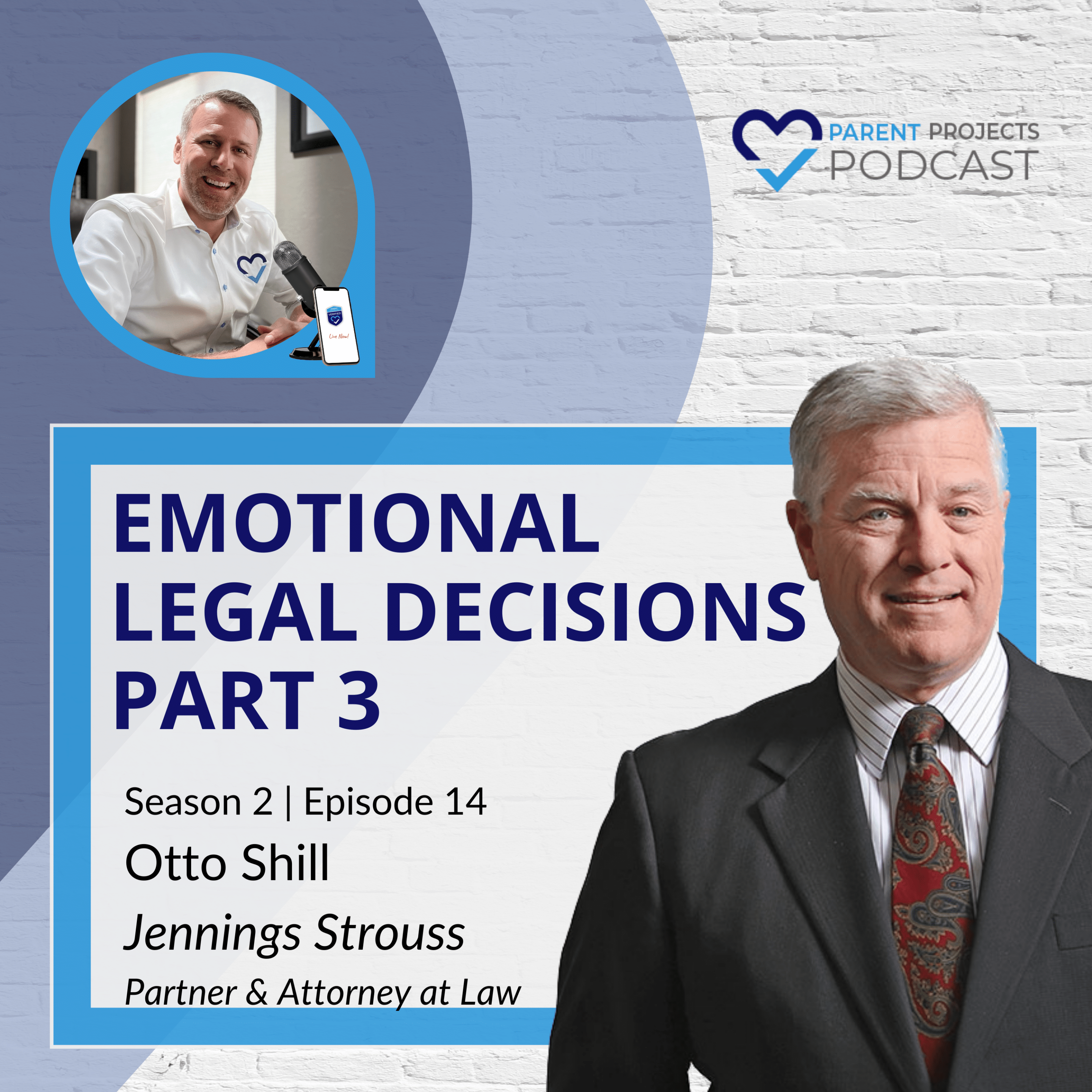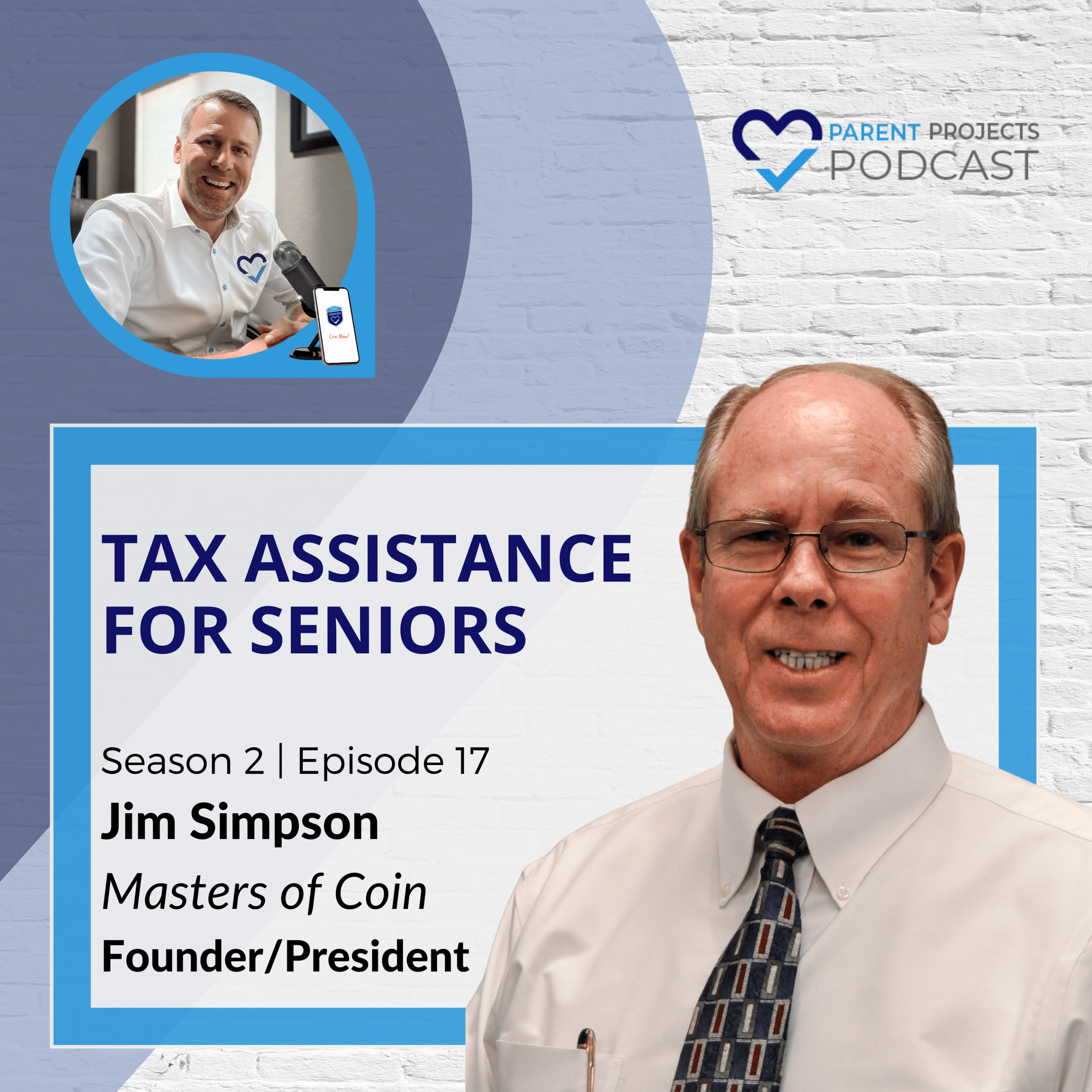Episode Transcript
[00:00:00] Speaker A: I showed it to my mom two days ago. She was visiting and her and my girlfriend started tearing because they heard me for the first time as a digital twin talking about my kids and what my goals were in life and things like this.
It was really impactful to hear, to see that and even me and everyone in the room was just like, wow, it's alive. Literally. That's what it felt like. It felt like a child being born. Because you hear it and you see it and you can understand that. This is Emil talking.
[00:00:56] Speaker B: You're listening to Parent Projects, a family media and technology group production. Now here's your host, Tony Siebers.
[00:01:05] Speaker C: Well, he's the founder of Mind Bank AI. He is an entrepreneur since 2009 and he is running as hard and as fast as you can imagine to set out a new way to change how we capture legacy. Emile Jimenez is joining us today with Mindbank AI. And the thoughts in the process and the way that we collect memories, we store memories, we reflect not just on somebody who's passed away, but on that life as we're working through. It has a lot of really neat benefits and some side products. I'm really excited to jump into it today. And Emil, hey brother, thanks again for joining me. It's great to have you on the show today.
[00:01:44] Speaker A: Thank you, Tony. Thank you. I'm happy to be know.
[00:01:48] Speaker C: So I really want to dive right in, if we could, the mindset of thinking about how you collect things or that things are going to change. I mean, that is you really were thinking about this, I think quite a while before most of us would have thought, oh yeah, maybe we're not writing letters anymore. I've got posts everywhere. I'm keeping it on a phone and pulling that all together in some usable kind of content. What was it that brought your brain to thinking about a different way of organizing this information, to use it better?
[00:02:21] Speaker A: Well, like most of us, I was inspired by a four year old little girl at the time, my daughter.
She was playing with her iPad that I had just given her to start playing. And the first time Siri popped up, she asked me, daddy, what is this? And I said, Honey, this is Siri. She's like a friend. Say hi Siri, and ask her a question. So she thought for a second and she says, hi Siri. Do you have a mommy? Siri, do you like ice cream? Show me your toys. And she started to have a conversation with Siri. After about ten minutes of fun and laughing, she says, siri, I love you. You're my best friend. And that's when an entrepreneur, technologist futurist scientist in me kicked. I said, you know, today she's talking to Siri, but she can maybe talk to me like that one day, even if I'm not alive. Because all Siri is, is just an interface to a database, then ask myself, how can I become that database? And then you start thinking of pulling all those things together. And that's how the idea started really literally from the name a mind, a bank for your mind, right. A mind bank. Right. And as we're all inspired by our kids and we want to leave a legacy, it really was how do I connect with my daughter forever? Right? That's kind of how it started, this entire thing.
[00:03:42] Speaker C: Well, that thought of legacy is something I think a lot of people working with a parent project, if their parents are even aged, we talk often, usually a loss of autonomy or that change in autonomy, if not loss altogether of some of it, and then how they're going to be remembered. The thought of legacy, when it hits them and maybe they didn't have a plan for it, or they don't feel settled in, where that's going to be, is a real challenge that pokes out in emotional problems and it pokes out in obstinace and just difficult conversations. So that application of you looking down into from your generation down, how do you think that starts to apply? Or how does that influence when you're looking at people thinking of a generation above them? And we're looking, you and I looking at maybe our parents generation.
[00:04:29] Speaker A: Well, if you look at the user today from a mind bank perspective and also when I started this project or this idea, really, I had an assumption that when you're in your 40s, you start realizing that your parents are getting older, right? Yet you're young enough to have young kids in the house still. So it's that interesting age where you're taking care of children and you start to take care of your parents, right? And you start realizing time. Time becomes a factor in your decisions when you're young. You got all the time in the world. When you're in your forty s and fifty s, you start realizing it's not infinite. So you start becoming much more cautious about it. And I think that's it takes time for you to develop that wisdom and that kind of self awareness when you look at it from a product perspective. One thing I realized when we launched is that we didn't think of the user interactivity of this app isn't perfect for that age group. Right. Because just simple things like the buttons were too small, right? Little things like that. The text was too small. So we started now for the new version. We're really addressing a lot of these issues. So it's accessible for everyone. If you can talk, you can use the application literally.
[00:05:45] Speaker C: Yeah, well, and that comes down to form factor.
One of the things we've obviously had other conversations about and a shared passion is being able to use these technologies in age friendly manners, right. The right way. I love that you've focused on collecting voice because that's something as easy as using it as easy as a tape recorder or something that can just simply collect those thoughts you've talked about it being kind of capturing the spirit of where things are at. Can you share a little bit about kind of where that comes from?
[00:06:21] Speaker A: Sure. So that comes from what I like to call when you think about yourself intrinsically, right? Or when you have a moment of prayer, for example, it's that little voice inside your head.
And those moments of looking inward have been lost for most of society, if you think about it right, that practice of meditation, prayer, whatever you call it has been lost. So what's interesting about Mind Bank as a product is that it creates that moment of introspection, yet at the same time you're speaking to something and you're putting it out there and recording this session. And what's interesting about voice is that voice doesn't age very much.
After we hit puberty, our voice stays pretty much the same until our very late, until our esophagus starts getting weak and we can't breathe properly, then obviously that affects your voice. But for the most part, your voice stays the same. And the other thing about that is if your thought of your parents might be if you close your eyes and you think of your dad, especially of dad who's passed away, what age is he right? For you? It would be different from your brothers, from your sisters, everyone's got but the voice does not change, right? You pick up the phone, you get a phone call from them. It's like that voice is eternal.
So that's why we like to capture the soul of the person through the voice. And what's beautiful about voice, too, is that it can live on your phone, it can live on the home speaker system, it can be in the car, everywhere. And that's just a beautiful thing. So we like to call it the spirit, it's the soul, so to speak.
[00:08:03] Speaker C: Well, what I like about that collection methodology too, is it's realistic for you talked about time. I mean, time is the one thing, doesn't matter how much money you have, you can't get more time that doesn't come back.
And we talked before.
The first time my kids asked me to start capturing all of my ideas and they wanted to know about me and all of this information. This journal is wonderful. And I was so flattered that my kids cared about my legacy that on Father's Day they would ask for this. But it's overwhelming for me to try to capture that way. And I very much like that ability to capture it in a different way. Once I saw what you're doing, I'm like, oh, that voice. Obviously the use of that is that's a great way for me to provide what they're looking for here. On the other side, there are some other things or some other benefits that come off of that when you capture it off of voice, I see we've got an opportunity to start looking at maybe even my mental health sentiment analysis type stuff, some personal development of just who I am.
I know that's a focus of what you guys also do with this. What are those byproducts? How did you come about in those, and what should we be thinking about those other byproducts that we get from collecting that kind of information?
[00:09:26] Speaker A: Yeah. So if you look at it from a journaling perspective, let's look at it as the act of writing things down or the act of talking about your life. The act of self reflection is one of the first steps of growth. Right. That's the sign of wisdom, right. That we learn from our past, and we're able to and we're learned from others. So the very act of putting it down is one step. But what's interesting about that journal, for example, is that you don't have a feedback loop to it.
However, we found ways to use what's called psycholinguistics. It's literally the psychology of your language to capture things like sentiment, emotions, personality.
And you can think of it from a we like to call it, like, know, when you meet someone at an event or at a bar, or tony's a nice guy, or something's wrong with tony's, bit off.
I call it the algorithm in your head that kind know, the warning signs go off or the green light goes on. We have it in us, right. We use linguistics to pick up these little nuances and put people within frameworks. Now we've got the ability to scale that in a product, right? FBI, CA, they've been using this for years, right? But now we can scale it because the speech to text is automatic, the labeling of the words is automatic, and it just goes and it creates a dashboard of your mind. Now, imagine you can see yourself develop over time. How am I as a 14 year old kid versus a 55 year old man? And how have I grown as a person through a dashboard, right? Am I more open? Am I less open? Am I more neurotic? All of these things?
I can tell you my personal dashboard. I can see I've more stressed. I've gotten a more stressful life, which makes sense. I had recently a death in the family, I had a new baby born, the business, all of these things. And I see I see my stress, I see my PTSD, all of these things. And when you start seeing yourself in the dashboard and have a reference point, it becomes really interesting self analysis. Right. We have dashboards for our finances, for our cars, for everything in our lives except ourselves.
[00:11:48] Speaker C: Yeah, well, and those things start with a baseline. Once you understand where you were and you can see the change over time, you can understand directionally, where you may be headed. I think that in a world where we don't know where the endpoint is going to be.
Maybe a great next step here is just to understand, well, what trajectory am I on in general, what direction am I headed. And I can know that by turning around and looking at where I came from and from there to where I'm at now can kind of give me an idea of maybe where I'm going to go. And that may be way too introspective or outside the box to think, but those are I see a lot of value, especially in the Dashboards and the other things. When it comes to that.
I want to continue the conversation against that. But I think what might be a great thing is just to give the audience an idea of what that looks like and where this comes through. Maybe we take a quick break here. We're going to play a spot and just a little 32nd demonstration of what you guys are doing. This is Mindbank AI. And to get an idea of that product, we'll be right back right after this channel.
You know, thanks for joining us back. We're here talking about building our legacy through technology. Emil Jimenez is with us at Mindbank AI. Obviously just a great opportunity to see in inside that inside the promo that you guys have. It talks a bit about different aspects and looking at yourself from openness or approachability or these other types of things.
How did that come about to being something you how did you come about understanding what would be usable for dashboarding?
[00:13:59] Speaker A: Well, that started with personality, right? If you look at the digital twin that we're building of yourself, it's really composed of three parts. One is what's called the large language model LLMs. So that's what you're seeing on TV these days, OpenAI and all these things.
Think of that as like knowing how to speak English. English, the language of English is a language model called English, right? And we have structured sentence and vocabulary and blah, blah, blah. Everyone speaks English, but not everyone has the same story.
And that's where the personal AI comes in. Your story, your legacy, your life, right? And that story is just a story. It's text. But then your personality is also composed of emotions. And I'm sure there's some things, Tony, that you don't want to talk about. It's a bit touchy. Oh, don't talk to Tony about that. That's part of your personal story. And your kids know that. That's a touchy subject, grandpa's.
And that's okay. It's okay to be emotional about certain topics because that's what made you who you are, and that's what the legacy of your life resulted in. And we should understand that and respect that and be okay with that as kids, as grandkids as your legacy.
And then obviously with the personality and the emotions that creates that personal digital twin. So if you see it as a part of personality, the Dashboards are in essence the backbone of your digital twin right. And then you've got your memories to give it the story and English is just the language, quite honestly, with our digital twin that's coming out, it's 18 languages I can ask it a question my digital twin in Japanese and it'll respond in Japanese with my story. I don't speak Japanese, but we took the language model of Japanese, fed it into my story with my personality and now it gives it an answer in Japanese with my voice yeah.
[00:16:05] Speaker C: That could give that value long term maybe two, three generations from now you've got family that live there and they're trying to understand what the wisdom you might have would translate into their everyday work right.
[00:16:19] Speaker A: How many families come from immigrant backgrounds in the United States?
[00:16:22] Speaker C: Right.
[00:16:22] Speaker A: Every single one.
So two people ago, you wouldn't be.
[00:16:29] Speaker C: Able to talk to your great grandfather probably that's fascinating. So what that almost does is it completely if you're on the border of recharacterizing the American melting pot experience instead of stating that it's a melting off of that, instead you're able to capture it our human dimension may have to put it to keep it simple right. It's a very convergent educational process and getting down to the point and working that way. But the reality is, who we are is a pretty complex diagram that comes from layers and layers of child rearing and society and other things that work within. And you don't necessarily have to boil it down. A large language model applied into something like this probably gives us the ability to take the value and cut it up in ways that our brains aren't able to do very quickly. But it can do it and make use of that.
[00:17:23] Speaker A: It's really about the know, it's just about the like I'll give you my US. My parents were born in a small village in the center of the Dominican Republic. I'm the first American born of the family, so we have a strong presence back on the island. And I was curious, and I hired a person to do a genealogical study and look into all the baptism and birth certificates and all that stuff. And my mother always thought that we were around about 1880s is when someone came from Spain. And I discovered that it was at least 1780, another 100 and some OD years before that and might have even been longer. There was no documents anymore. Right? No, sorry. 1720. So it was amazing to discover that. And then I started asking myself, who is this person? How did he get there?
And all of these questions are really if he boils down to it like who am I? Because I am a product of this person who somehow ended up there right.
And it's a beautiful thing and then let's say, for example, like I mentioned earlier, even if you don't speak that person's language, I'm sure you'd be curious. How did great grandpa come from Germany or Eastern Europe or Italy and all these different places and you know that they're from some small town somewhere. But what if you were able to have a conversation with this person?
[00:18:56] Speaker C: Sure.
[00:18:57] Speaker A: So with Mind Bank, the next generation will literally be able to have a conversation with you in whatever language they speak.
[00:19:06] Speaker C: Yeah.
I do love, though, the focus, too, on the living and that value off of the information that we're putting in. I've done similar types of research that you talk about, and I can't think of anybody that I know that hasn't done some level of that to understand where they come from, to maybe understand why my family does the things that they do, the things that got lost, things that got handed down in one tradition from another, or those things may have been collected and you could piece them together in writing for a period of history. But we have a whole area called the Dark Ages because we didn't collect a lot of information. Right? There's this big void and suck of information. So the thought of being able to capture this in some way that we can cut it up and make use of it not just in our own lives here, but add context to what it was like for us to experience that when we were doing now. And it can be presented in a better context 100, 200, 500 years from now.
That's pretty incredible. Maybe it will even lead, and hopefully it will lead to better understandings of genealogy, of our history, of where individual, the values of where each of us come from individually without feeling like you have to just get to the point or boil someone else's legacy down to your common understanding.
I think it's pretty cool.
[00:20:34] Speaker A: Yeah, it definitely comes down to I think you touched upon it earlier is identity, right? If you think about a lot of the problem, in my opinion, a lot of problems we face in America today are identity problems, right? Like, who am I?
Where am I in these? All these things come down to who am I and where do I fit in? And if you can go back and say, this is where I come from. This is where I am today, you have those reference points.
It's quite interesting to say we were really off bad. We were really bad off wherever in Ireland, and we had to leave. And now we've got a nice house. So you have a reference point of progress, right?
I'm sure we make the same mistakes our great great grandparents make. I can almost guarantee it because there is that what's called ancestral baggage that we don't even realize. And hopefully this tool, Mind Bank, is a way of you tapping into that and saying, let me not make those mistakes, and learning from your past and understanding coming to acceptance. Because once we understand that it's part of who we are. We can manage it and change, right? And we're seeing that today with DNA, for example, like how things like alcoholism is a genetic trait, right? It's in our DNA. Literally. It's been proven. So if you know that and your digital twin happens to know that, then it might say, hey, Tony, you might want to not drink those three glasses of wine tonight. Right? Stick to one. Let's stick to one.
Just because you have it become much.
[00:22:23] Speaker C: More self aware or even be able to help your next generation become more self aware before that conversations happen. Because maybe talking about that alcoholism had the right time in the right context to have the conversation, but that's got an ability to make an introduction of those concepts and that empathetic approach long term to the next generation, the generation afterwards, as to what may or may not be in their best interest.
Where can families that are interested in what you guys are doing find more information about you guys?
[00:22:53] Speaker A: So definitely you can go on Twitter. We are quite active in Twitter, LinkedIn, and all the other social media platforms. Definitely our website, Mindbank AI, very simple name to remember the website, as I mentioned, to know we've got so much in the garage that we have to put into the website. Even that video you saw, it's a little bit outdated. The product today is on the market, so you can download it from the app stores. But pretty soon we're launching a web version of the app and it's going to be quite remarkable.
To put into context, I'm going to be launching it in a few weeks at a conference in Dubai, and the digital twin of me will be on stage where you can ask it a question. And the most amazing part of it, Tony, it's only 70 data and it's smart.
[00:23:43] Speaker C: Wow.
[00:23:44] Speaker A: Which is crazy. I've on purpose made it a small data set just to see how stupid or smart it is. And it's astounding how only 70 data actually gives a really smart response. To put into context, people, 70 data is like an emoji on your phone.
[00:24:07] Speaker C: Completely. It is that little icon that sits up at the top on your web.
[00:24:11] Speaker A: Browser, the little smiley face that maybe goes like this, it is nothing. And it's me with my voice.
[00:24:21] Speaker C: Emil it is a blessing to be able to take a look at what you guys are doing this way. I think you're really onto something, particularly today in starting to collect the use of voice and collecting legacies, spending that time maybe not even knowing where everything's going to go long term. But just understanding this gives some purpose to collecting that legacy. And so if you're thinking about, look, if you're watching the show, you're looking for that way to kind of motivate a family member who's maybe sitting there and you can see they're looking to share or to work off of something, this could be really a real possibility for you guys to collect. That's an easier way for them to go about so long as they can record their voice and be able to get that information in. Right, Emile? It sounds like that's as simple as it starts loading that up.
That may be a little bit easier than handing this to a 75 year old grandfather or your dad and asking him to sit down and start journaling for the next few months.
[00:25:20] Speaker A: What I would recommend to add to that, Tony, we're going to be adding new features to where you can upload documents. You're going to be able to upload recordings, literally anything that's content based. The only thing we don't do really right now is video.
But anything that's voice based that we can convert to text can create a digital twin.
[00:25:41] Speaker C: Sure.
[00:25:41] Speaker A: So if they have historical data, if they have even videos that record anything, really. And it doesn't take much to create a really interesting version of your digital twin. Really. As you saw 70. I'm astounded me. I showed it to my mom two days ago. She was visiting and her and my girlfriend started tearing because they heard me for the first time as a digital twin, talking about my kids and what my goals were in life and things like this.
It was really impactful to hear, to see that and even me and everyone in the room was just like, wow, it's alive. Literally, that's what it felt like. It felt like a child being born. Because you hear it and you see it and you can understand that this is Emil talking, right? This computer sounds like him.
Even I was like, astounded. Really? That's why I think what I recommend, definitely start recording yourselves.
One recording a day. You don't have to go crazy, because for me, I only inputted about 40 recordings to get the 7. It made my mom cry, which is really powerful stuff.
I'm quite proud and happy, and it's just the beginning, Tony. That's the most important thing.
[00:27:06] Speaker C: We are looking forward to continuing to following that challenge, integration and seeing how your platform really dovetails well. Love seeing it. Love hearing this story. Looking forward also to having a follow up chat with you for our business networks and those that are interested to see the challenges that come with having a company like this and pulling that all together, be sure to check out the in focus episode that we're going to do. And outside of that, boy, Emil, thank you so much for sharing with us your time, talents and treasures today here on Parent Projects podcast.
[00:27:37] Speaker A: Thank you very much, Tony. It's been a pleasure.
[00:27:44] Speaker D: Well, that's it for the team this week, and thanks for joining us. If you've enjoyed the content, remember to subscribe and to share this episode on the app that you're using right now. Your reviews and your comments. They really help us expand our reach as well as our perspective. So if you have time, also drop us a note, let us know how we're doing for tips and tools to clarify your Parent Project, simplify communication with your stakeholders, and verify the professionals that you choose. You can find us on YouTube, follow us on Instagram and Facebook. Thanks again for trusting us. Until our next episode. Behold and Be Held.
[00:28:16] Speaker B: Thank you for listening to this Parent Projects podcast production. To access our show notes, resources or forums, join us on your favorite social media platform or go to parentprojects.com.
This show is for informational and educational purposes only.
Before making any decisions, consult a professional credentialed in your local area.
This show is copyrighted by Family Media And Technology Group, Inc. And Parent Projects, LLC. C written permissions must be granted before syndication or rebroadcast.
